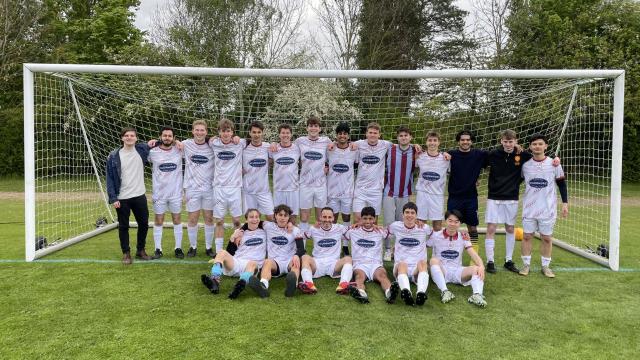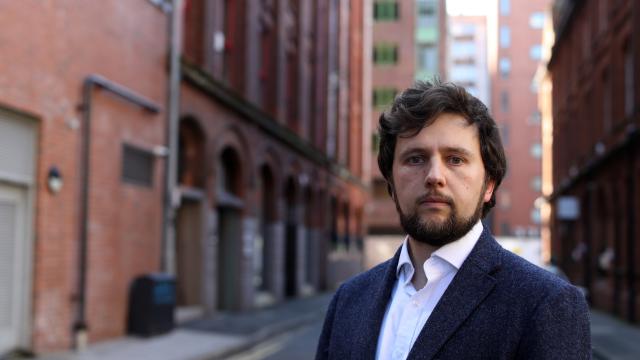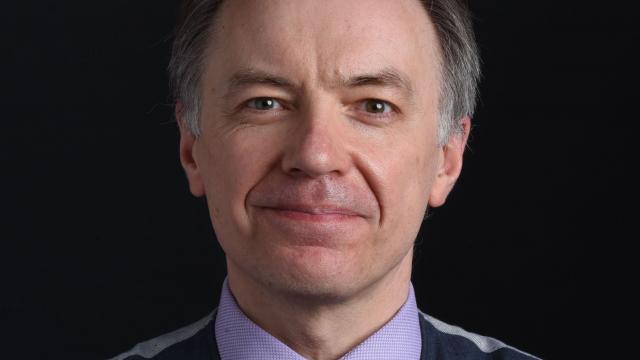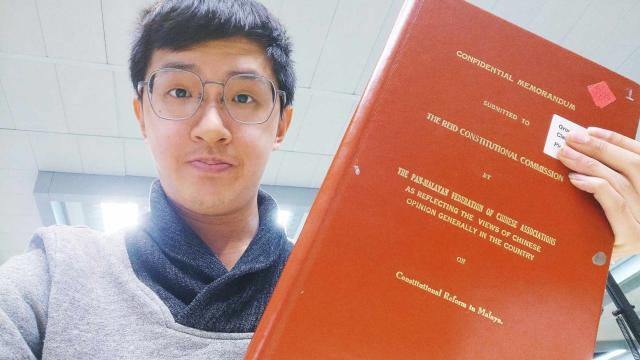
Labour, unification, the Protocol, and Stormont: hype and hypotheses
Sam McBride, Northern Ireland Editor at the Belfast Telegraph, opens the 2022-23 series in discussion with Professor Mike Kenny, Director of the Bennett Institute for Public Policy at the University of Cambridge, regarding Keir Starmer and what his premiership may look like for Irish unity. What effect would a Labour government have on the campaign for a united Ireland? Is Irish nationalism too reliant on anti-Tory sentiment? Does Labour have a natural affinity with republicanism? Do UK politicians care about Northern Ireland as much as they used to? Is there an alternative to Stormont? And we return to the ever-present question of the Northern Ireland Protocol.
Scroll on to discover
- Executive summary
- About the speaker and discussant
- Watch the conversation
- What was said?
Executive summary
- For most of Sir Keir Starmer’s tenure as Leader of the Labour Party, there have been significant doubts over whether he would lead Labour in the next general election, and whether Labour could credibly win it. Recent events have transformed Starmer into an individual who will almost certainly now become prime minister in the next few years. It’s therefore time to consider what his government may look like, and the implications of that for Northern Ireland.
- Although Starmer hasn’t laid out much policy on Northern Ireland, we can read between the lines on some of his constitutional positions. Starmer’s politics have tended towards ‘small-c-conservatism’, with some occasional headline left-wing policies. His speech following the death of Queen Elizabeth II in September 2022 suggested a constitutional vision that attempts to maintain the Union.
- This goes against the policy of Blair and New Labour who presented themselves as firmly neutral on the Union. It is also contrary to the longer history of the Labour party, who McBride thinks had a ‘instinctive affinity’ with Irish nationalism that was firmly reciprocated.
- Rishi Sunak, elected prime minister on the same day of this event, hasn’t yet made any significant statements on Northern Ireland, but McBride expects that he will not be able to push through anything controversial. He suspects we'll see a continuation of the warming of relations between London, Belfast, and Dublin.
- Current forms of Scottish and Irish nationalism hope to persuade voters who lie in the centre ground of the constitutional debate to back their more radical causes by relying on a dislike of the Conservatives and Brexit. A UK Labour government which reverts to greater alignment with the EU, and more progressive politics, may, therefore dampen voters' support for Sinn Féin.
About the speaker
Sam McBride is the Northern Ireland Editor of the Belfast Telegraph and the Sunday Independent. He also writes about Northern Ireland for The Economist and was previously Political Editor of the Belfast News Letter. His 2019 book Burned: The Inside Story of the Cash-for-Ash Scandal and Northern Ireland’s Secretive New Elite became a Sunday Times and Irish Times bestseller and was nominated for the Christopher Ewart-Biggs Memorial Prize. He is a regular presence on radio and television, giving analysis of events which impact on Northern Irish politics.
About the discussant
Professor Michael (Mike) Kenny is the Inaugural Director of the Bennett Institute for Public Policy. Mike is currently involved in research projects exploring the territorial implications of Brexit (as part of the ESRC-funded ‘Between Two Unions: the constitutional futures of the islands after Brexit’ programme); the policy dilemmas associated with ‘left behind communities’; the politics of expertise in public policy; and the implications of behavioural science for public policy. He is currently writing a book about the remaking of the British state and different potential constitutional futures for the UK.He has held previous positions at Queen's University Belfast, Queen Mary University, and the University of Sheffield.
Watch the conversation
What was said?
The first meeting of the Cambridge Future of the Island of Ireland series of the new academic year met against the backdrop of Rishi Sunak’s election to prime minister following Liz Truss’s downfall. It was fitting, then, that Sam McBride chose to speak about Labour leader Keir Starmer and what his anticipated premiership may look like for Irish nationalism and the campaign for a unified Ireland.
As McBride explained, until this month Starmer’s tenure as Leader of the Labour party and HM’s Opposition has been dominated by questions of whether he would still be leader at the time of the next general election. With the Tories in seemingly constant crisis, however, many are now certain that Starmer will lead the next Labour government. He will inherit a union that is more ‘fragile’ economically and constitutionally than any other time in recent history, and it is likely he will win a landslide on the promise of being stable and boring. What will this mean for Northern Ireland? McBride described Starmer as ‘essentially conservative’ (with a lower-case ‘C’), a politician of ‘plodding caution’, and notes his most radical move as leader was the expulsion of Jeremy Corbyn. Whilst he has rarely commented on Northern Ireland policy specifically, McBride pointed to his speeches following the Queen’s death as providing a constitutional vision of the future. Starmer spoke firmly in favour of maintaining the Union, saying, “The country she came to symbolise is bigger than any one individual or any one institution. It is the sum total of all our history and all our endeavours, and it will endure.”
Such conservative values offer a profound dilemma to Irish nationalism, McBride argued. Its ‘instinctive affinity’ has always laid with Labour – the SDLP take the Labour whip, for example, and all nationalist parties in Northern Ireland are left-of-centre. Despite this, Labour has historically disappointed republicans in particular. Roy Mason and Peter Mandelson were the Secretaries of State that were particularly disliked and although Tony Blair brought Sinn Féin into power-sharing, he refused to campaign for Irish reunification. Starmer has broken away from New Labour’s essential neutrality on the Union and has come out as openly pro-Union, declaring Labour would campaign for Northern Ireland to stay in the Union in the event of a vote.
McBride suggested Labour’s anticipated re-alignment of UK policy with the EU will further undermine the campaign for Irish Unity. The Irish Sea border is likely to be softened too. The possibility of re-joining the EU is currently a significant pillar of the campaign for unity. For similar reasons, a Labour government would likely undermine the case for Scottish independence which will have its own ripple effect on Irish unity. When asked about the effect on Scottish politics by a member of the audience, McBride suggested that there are parallels with the current Conservative party and the SNP. He pointed out that there is a natural cycle in democratic systems and both parties are running out of ideas.
In his discussion with Professor Mike Kenny, the pressing topics of the moment came up: Rishi Sunak’s premiership, the Protocol, and the possibility of new elections to Stormont. Sunak has given little indication of what his Northern Ireland policy will look like, but McBride thinks that the threat of the European Research Group (a parliamentary group of Eurosceptic MPs) to bring down the government over the Northern Ireland Protocol Bill highlights the weaknesses within the Conservative majority. Earlier in his intervention he had mentioned that Sunak wouldn’t be able to enact any controversial legislation due to his lack of mandate and a strong majority. Since the event, the Secretary of State for Northern Ireland has called for new elections, but at the time, McBride thought that Sir Jeffrey Donaldson’s decision about whether to re-enter government or not would be a career-defining one. He thought that it was clear that Stormont was unpopular and broadly seen as a broken institution. Niamh questioned what the alternative was, prompting McBride to admit there currently wasn’t an obvious solution. Whilst he thinks there is support for the principles of the Good Friday Agreement - and Stormont is seen as the most tangible institution that flows from the Good Friday Agreement - there is a ‘dangerous level of discontent’ between the public and politicians in Stormont. He lays the blame with the politicians who have ‘wrecked’ Stormont with ‘gay abandon’ and now must face the consequences of that.
Niamh also turned to questions of history and commented that many of the original concerns about a united Ireland expressed one hundred years ago by unionists have ceased to exist – Britain no longer has an empire, the Republic is a secular state and economically is doing well. Why, then, do unionists generally appear to still fear unification? McBride commented that unionist politicians have failed to update their main arguments to even make a positive case for union, highlighting Arlene Foster’s argument that Northern Ireland watches the same football as England as an example of how weak the current arguments are. However, he says there are understandable fears of deviating from the safety of the status quo, a fear that he thinks people in the Republic share. Following the divisive nature of Brexit, there is a fear that a border poll may result in a return to the violence of the past.
A member of the audience asked what effect the UK potentially rejoining the EU may have on Northern Ireland. Ironically, McBride thinks closer alignment with the EU or even rejoining would likely be beneficial to unionism. It would remove the disagreements over the Protocol and, as already stated, take the wind out of the campaign for unification. While the protocol is clearly not working, making it work would have a similar effect in securing the union, as tricky as that might be.
Mike Kenny closed the discussion with a thought-provoking, and often neglected question to reflect on. What does good government in Northern Ireland look like in the short to medium term and who are the stakeholders trying to improve things?




